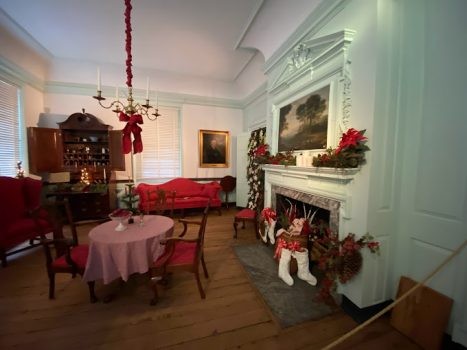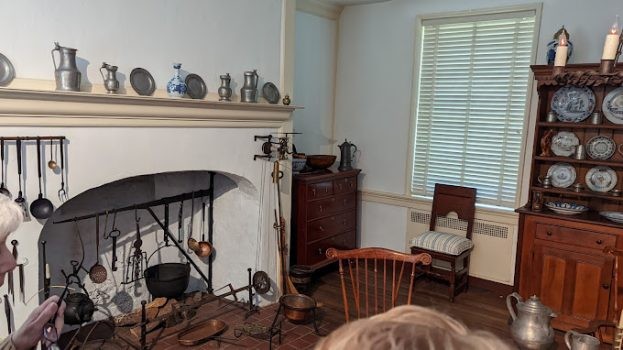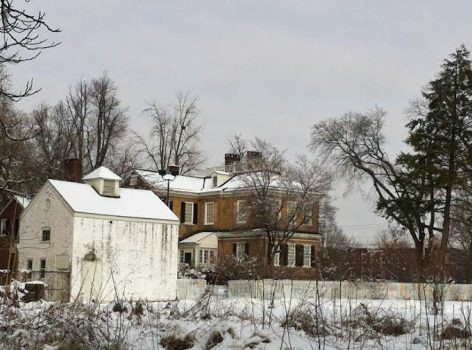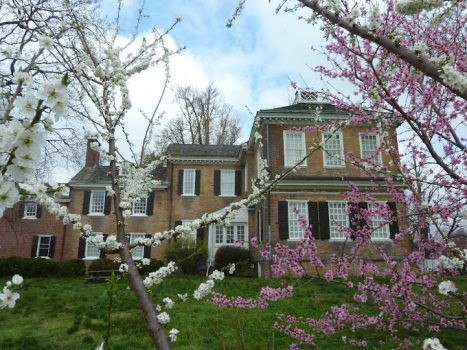Woodford Mansion
Woodford Mansion is one of the most elegant survivors of the group of early “country seats,” which were built in the countryside along the Schuylkill River outside of colonial Philadelphia. The house is said to have been named after the nearby woods and the ford across the Schuylkill River. Its owners have included some of the most significant names in early American history.
A Summer Home in the Country
William Coleman (1704-1769), an influential figure in early Philadelphia history, built Woodford–a 1.5-story Georgian-style summer home with a servants’ house and stables–in 1756-58 on 12 acres of land. Coleman was a highly educated and successful merchant who also served as a judge in the colony and became a justice of the provincial Pennsylvania Supreme Court. He and his wife Hannah raised Hannah’s orphaned nephew George Clymer, who went on to be a signer of both the Declaration of Independence and the Constitution. Benjamin Franklin, a close and long-standing friend, said of Coleman, “He has the coolest, clearest head, the best heart, and the exactest morals of almost any man I ever met.”
Following Coleman’s death, Woodford was owned briefly by Alexander Barclay, the Customs Comptroller for the Port of Philadelphia, until his untimely death in 1771.





